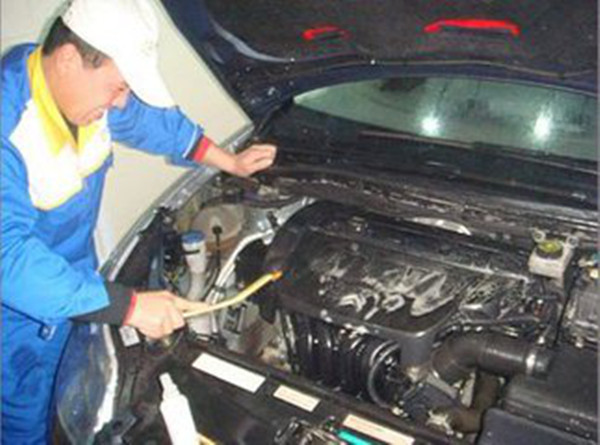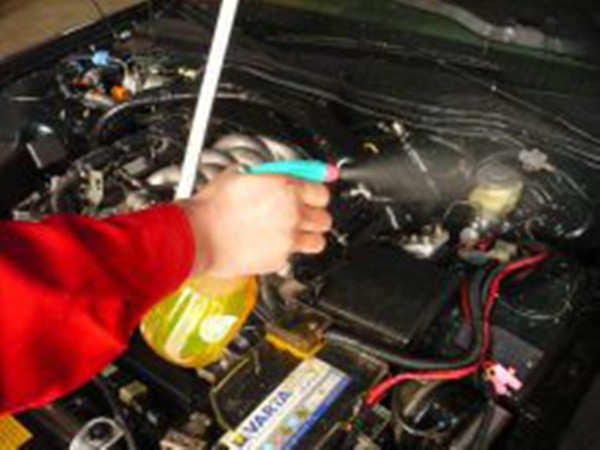Under normal operating conditions, an automobile engine will produce an impurity that will have a serious impact on its life. If it is not cleaned in time, it will be no less harmful than "poisons." What kind of impurities is it? How could it be so harmful? How can we clean it?
This kind of impurity is called "oil sludge" and it is generated by the engine under normal conditions. It is unavoidable. Before cleaning the sludge, it is only necessary to add "cleaning agent" to the old engine oil for 15-30 minutes, after which the new oil can be replaced. Because the oil components contain detergents and dispersants that remove carbon deposits or sludge, they clean the metal surface, disperse the sludge deposits, and clean the interior of the engine.

How to use detergent to remove sludge? It only takes a few steps:
1, check the amount of engine oil, if you find that the amount of oil is insufficient, it should be added in time, and the old oil with a drop of oil on a clean filter paper;
2. Start the engine, make it run and reach the required working temperature;
3, turn off the engine, pour the entire bottle of cleaning agent into the engine and mix the old engine oil;
4. Start the engine and turn the engine off after idling for about 10 minutes;
5, let go or pump clean old oil;
6, and then take a drop of old oil droplets on the same filter paper, and compare two drops of oil residue traces, found that the removal of oil droplets more obvious dirt, indicating that the engine sludge deposits and other deposits are fully cleaned;
7. Replace the new oil filter and add enough new oil;
8. Start the engine and idle for 2 minutes to ensure that the new oil is fully lubricated.

What need to pay attention to cleaning the engine?
1. For older vehicles with more than 100,000 kilometers, internal engine cleaning is not recommended.
2. During the cleaning process, it must be kept in a parking state. It is forbidden to carry the load.
3. Vehicles with burning oil, etc., are strictly prohibited from cleaning.
4. Vehicles that have never been cleaned inside the engine within 80,000 kilometers. Carefully clean.
5. Use inferior engine oil and clean it carefully.
6. The working environment is bad, and the carbon deposit is particularly prominent. Cleaning is not recommended.
The above is about the “oil sludge†cleaning method and the matters needing attention when cleaning the engine. In fact, the “oil sludge†cleaning is not difficult, but only the owners need to be diligent in maintaining the vehicle. Do not delay the maintenance. Otherwise, the consequences can be disastrous.
CAPP is also used as a food additive to regulate acidity and prevent the formation of crystals in processed foods. It is generally recognized as safe (GRAS) by the U.S. Food and Drug Administration (FDA) and is commonly found in a variety of foods, including bread, cake, cookies, and muffins.
Calcium acid pyrophosphate (CAPP) is a white, odorless powder that is commonly used as a leavening agent in baked goods, such as bread, cakes, and pastries. It is also used as a buffering agent, a stabilizer, and a sequestrant in various food products.
CAPP is a salt of pyrophosphoric acid and calcium, with the chemical formula Ca(H2P2O7)2. It is produced by reacting phosphoric acid with calcium carbonate or calcium hydroxide.
In baking, CAPP reacts with baking soda (sodium bicarbonate) to produce carbon dioxide gas, which causes the dough or batter to rise. This reaction occurs when the mixture is heated, and the gas is trapped in the dough or batter, creating air pockets that give the baked goods a light and fluffy texture.
CAPP is generally recognized as safe (GRAS) by the U.S. Food and Drug Administration (FDA) and is widely used in the food industry. However, excessive consumption of CAPP may lead to gastrointestinal discomfort, such as bloating and gas.
Calcium Acid Pyrophosphate CAPP,Food Grade Monocalcium Dihydrogen Pyrophosphate,Calcium Acid Pyrophosphate Leavening Agent
Sichuan Jinhe Qihang Co,. Ltd. , https://www.jqfoodadditives.com
